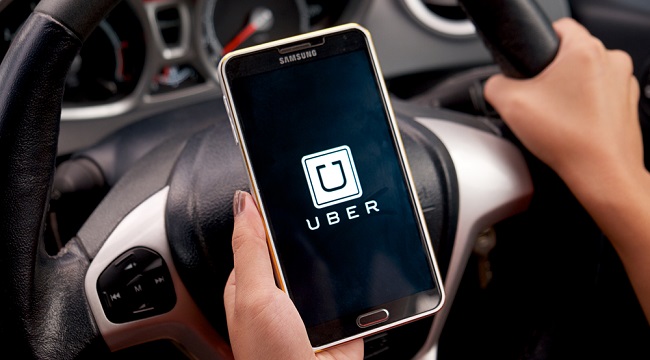
On Saturday, as thousands of people protested Donald Trump’s immigration ban at airports around the country, one of the largest groups of people convened at JFK in New York. Throughout the night, New Yorkers holding signs supporting residents of the seven banned countries chanted and shouted in order to free those being detained in the airport. In the midst of it all, New York’s taxi drivers released a statement in support of the protests and announcing plans to boycott and drop offs or pickups from JFK. Which only makes sense, as many taxi drivers in New York are either directly affected by this ban based on their citizenships or are members of the Muslim faith.
In response, Uber decided that the best choice was not to stand in solidarity (unlike Lyft) and instead seemingly capitalize on the yellow cab strike by suspending surge prices (which normally depresses ridership numbers) and continuing to keep their cars on the road. This, combined with the fact that the company’s CEO is already part of Trump’s economic advisory team, set off a #DeleteUber campaign that quickly spread throughout social media and drew attention from various celebrities as well. Lyft soon released a statement supporting any of its employees affected by the new Executive Order and is donating $1M to the ACLU over the next four years. Uber’s assertion that would help any affected families pro bono for three months wasn’t enough for disappointed customers to change their minds.
An Uber spokesman then told Fortune,
“The decision to turn off surge pricing was made specifically to avoid profiting from increased demand during the protest. The company has previously made a similar commitment to limiting surge pricing during disasters, after being accused of taking advantage of riders in times of need.”
However, it wasn’t convincing enough and many people deleted their Uber accounts completely over the issue. So on Sunday, Uber CEO Travis Kalanick doubled down in an attempt to turn public opinion about the company around. There is now a $3M defense fund being set up by the company to defend drivers affected, and he even managed to let a little contempt for Trump come through. But just a little. In his lengthy statement detailing the services available to drivers affected, Kalanick called the ban “unjust” which still falls short of the forceful and unequivocal denouncement of the ban coming from elsewhere in Silicon Valley.
Will this be enough for former customers to hit the app store and re-download the popular ride sharing app? Or is this latest PR nightmare the one that Uber won’t be able to come back from in the end? Parsing public sentiment in a way that balances company priorities and generally agreed upon morals can sometimes be difficult for big companies like this one, but at least Kalanick is coming closer to a solution that would satisfy an upset customer base.
